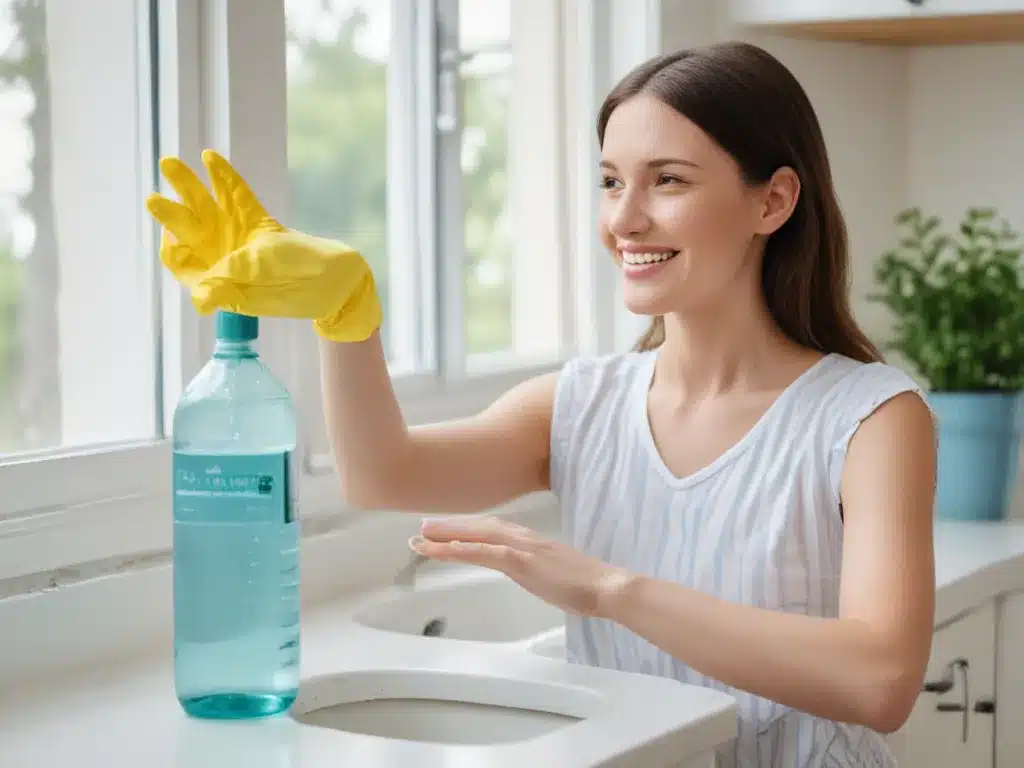Spring is the perfect time to give your home a deep clean and remove lingering germs from the winter months. Instead of using harsh chemical cleaners, I highly recommend using natural disinfectants that get the job done without toxins. Not only are they better for my health, but they are often more affordable and accessible too.
Why Use Natural Disinfectants?
Here are some of the main benefits of using natural disinfectants to sanitize my home:
-
Non-toxic – Natural disinfectants like vinegar, hydrogen peroxide, and essential oils are not made with harmful chemicals that can irritate eyes, skin, and lungs. This makes them much safer to use around children and pets.
-
Environmentally-friendly – Synthetic chemical cleaners contain compounds that are not biodegradable. When washed down the drain, these toxins pollute waterways. Natural disinfectants break down naturally without harming the environment.
-
Cost-effective – Many natural cleaning ingredients like vinegar, baking soda, and lemon can be purchased in bulk for a fraction of the cost of commercial cleaners. A little goes a long way!
-
Antibacterial & antiviral – Natural disinfectants like thyme oil have been scientifically proven to kill bacteria and viruses, including strains of coronavirus and E. coli. They sanitize just as effectively as chemical alternatives.
-
Non-irritating – The fumes from harsh cleaners containing bleach, ammonia, and formaldehyde can cause headaches, coughing, and aggravated asthma. Natural disinfectants have no irritating chemical smells.
Choosing the Right Natural Disinfectants
There are several plant-based ingredients that can be used to make effective natural disinfectants. Here are my top recommendations:
Vinegar
Vinegar is acidic which enables it to kill bacteria, viruses, mold, and germs. White vinegar is ideal for cleaning most surfaces while apple cider vinegar adds a pleasant scent. Mix a 1:1 ratio of vinegar with water in a spray bottle and use on countertops, floors, toilets, and sinks.
Hydrogen Peroxide
A powerful oxidizing agent, hydrogen peroxide at 3% concentration can annihilate pathogens by damaging their cell membrane structure. Use it undiluted on surfaces or combine with baking soda to make a scrub. Note: Avoid contact with skin as it can cause irritation.
Essential Oils
Many plant essential oils like lemon, thyme, cinnamon, and tea tree oil contain antimicrobial compounds that destroy viruses, bacteria, and fungi. Add 20 drops of your chosen disinfecting oil to a spray bottle filled with distilled water, shake well and spray surfaces.
Castile Soap
Naturally derived from vegetable oils, Castile soap has antibacterial properties. Mix 2 tablespoons of Castile soap with 1 quart of water and use to clean and disinfect floors, countertops, sinks, and toilets.
Lemon Juice
The citric acid in fresh lemon juice lets it break down stubborn grime, soap scum, and mineral deposits. The antibacterial properties also kill germs and viruses. Mix equal parts lemon juice with water in a spray bottle and use on most hard, non-porous surfaces.
Baking Soda
A mildly abrasive and alkaline substance, baking soda can remove tough stains when used as a scouring powder. It also absorbs odors and has antiseptic qualities to sanitize surfaces. Make a paste by adding just enough water to baking soda and scrub clean.
Best Practices When Using Natural Disinfectants
To ensure natural disinfectants work effectively, follow these guidelines:
-
Clean first – Wipe away any dirt or grime before disinfecting so the solutions can work directly against germs.
-
Use warm water – Warm water helps dissolve and activate many natural disinfectants. Avoid extremely hot water as it can evaporate the solutions.
-
Let it sit – For maximum disinfection, allow natural cleaning solutions to sit on surfaces for 5-10 minutes before wiping. This contact time lets them kill more germs.
-
Agitate – When cleaning porous surfaces like cutting boards, scrub vigorously to get the disinfectant into every groove where bacteria can hide.
-
Rinse – Rinsing surfaces like countertops and sinks after cleaning is important to remove any residue.
-
Make fresh batches – Natural disinfectants lose their potency over time. Mix a new batch weekly for cleaning.
-
Use caution with acids – Acidic solutions like vinegar and lemon juice can damage certain surfaces like marble. Spot test first.
-
Ventilate – Open windows or turn on fans when working with strong essential oil or hydrogen peroxide mixtures.
Conclusion
This spring, I highly recommend sanitizing your home with all-natural disinfectants. They are powerful cleaners that kill viruses and bacteria without exposing your family to scary toxins. Pick ingredients like vinegar, Castile soap, baking soda, and lemon juice that you likely already have in your pantry and start mixing up some frugal, eco-friendly solutions today. With a little routine elbow grease, you can eradicate dirt and illness-causing germs without the scary chemicals.







